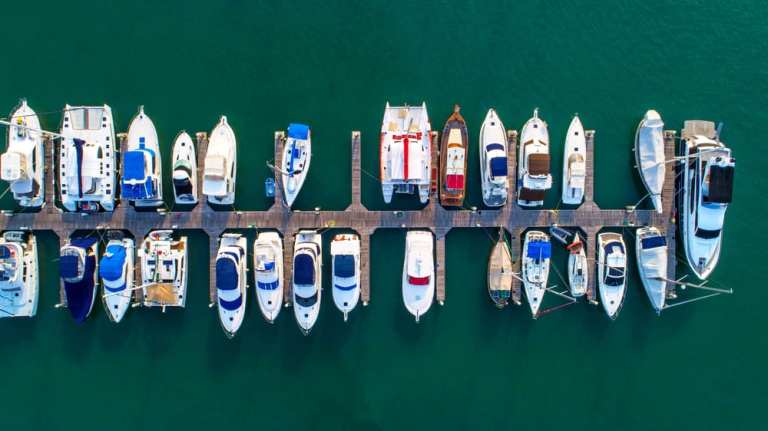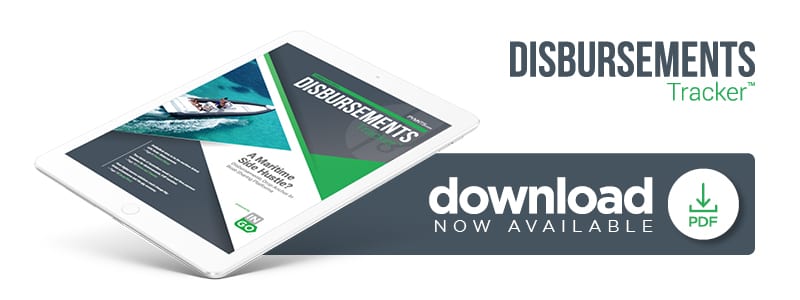A Maritime Side Hustle? Disbursements Drop Anchor In Boatsharing Platforms

From Uber to Airbnb, the sharing economy opens many opportunities for consumers to monetize assets they own, but don’t always use — like those holes in the water called boats. In the new Disbursements Tracker, GetMyBoat COO Bryan Petro tells PYMNTS how speedier disbursement solutions are ushering in a sea change for the maritime rental market.
The sharing economy has created ample opportunities for gig workers to earn money, whether they’re driving for Uber or renting out their homes on Airbnb. Those two platforms currently dominate a significant share of the market, but the space appears ready for a sea change.
Platforms like Boatsetter, Click&Boat and Samboat help boat enthusiasts who do not have their own rent a wide array of vessels, including yachts, sailboats and catamarans. Boaters can list their vessels, specs, photos and rental prices on these websites and apps, similar to how a property owner would list on Airbnb. The platforms also help boat owners maintain pricing transparency, meaning renters have no need to haggle. Instead, payments are held in escrow and disbursed when the rental period is complete.
Bryan Petro, chief operating officer for GetMyBoat, recently spoke with PYMNTS about how connecting renters with appropriate listings online and guaranteeing speedy disbursements to boat owners is key to modernizing the boatsharing market, and how these changes are making waves in the industry.
Side Hustling on the High Seas
Boat owners’ expenses do not come to an end after they put money down on their vessels. Owning a boat is similar to owning a car or a home in that there are plenty of expenses to consider.
“There’s maintenance, storage, the cost of operations [and] depreciation,” Petro said.
On top of that, boat owners rarely make use of their boats, spending an average of just 28 days per year on the water. Some rent their boats out because it gives them an opportunity to secure returns on their investments and recover some of the expenses involved in ownership, Petro said.
GetMyBoat’s disbursement solutions enable owners to do more than earn extra income, however. Those with multiple vessels can make a living off of renting out several boats in their fleets.
“We’re giving people a chance to offset the costs [associated with owning a boat],” he explained. “This definitely can be a side hustle, but also a full-time job — [it’s] all what you want to make of it.”
With the maritime industry embracing both new technologies and marketplaces like GetMyBoat, improving the speed of disbursements is a top priority.
“Trying to reduce that payment time is on our roadmap to address,” Petro said.
Upgrading the Maritime Model
As is the case in other sharing economy markets, it’s unlikely that boat owners would allow strangers to take the keys to their expensive purchases without payment being guaranteed. GetMyBoat solves this problem by holding renters’ funds in escrow, ensuring the interests of both parties are protected.
In the past, renters would be required to reserve and pay for boats at least six months in advance, with all funds wired directly to the owner. This old-fashioned arrangement often leads to frustrations between owners and renters in the maritime market, which can be slow to embrace technological changes, Petro noted. The shift to smartphone-based platforms and more responsive websites is pushing the maritime market into the 21st century.
“We’re shifting some of that [older] consumer behavior because, as we’re seeing, that is not the pattern people want to go with,” he said.
Embracing new technologies could bring more millennials into maritime-based activities. According to recent data, boat ownership is down by a considerable amount among younger consumers, but their interest in maritime activities remains steady.
“There’s definitely a technology gap there,” Petro claimed. “It’s a slow churn to get the industry up to speed with technology and how consumers want to consume goods and experiences.”
He hopes boatsharing platforms and new technologies will make having a boat a lucrative opportunity for owners, and make boating a more attractive, seamless and affordable activity for enthusiasts looking to access a vessel for an outing.
“My hope for the industry is that it continues to grow as a whole, and that more people are able to afford and have access to this life-changing and, in most cases, memorable experience,” Petro said.
As technology improves and more owners and renters access these platforms, it appears disbursements are steering the sharing economy into friendly seas.
